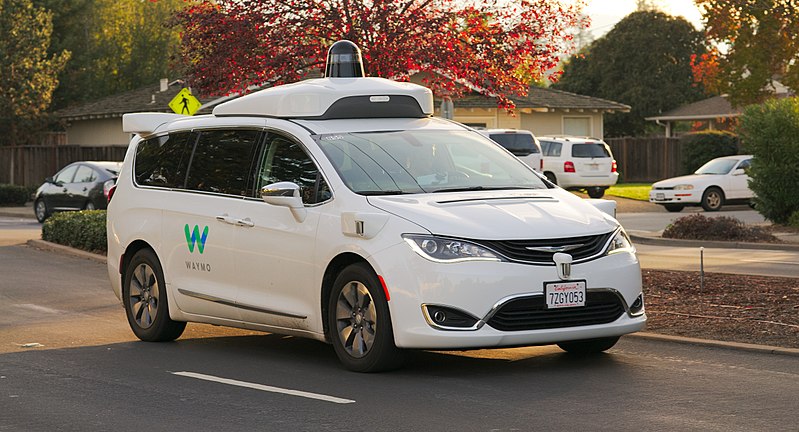At last, it is here! The truly self-driving car, no human behind the wheel! For the public! …A few hundred of them, in a closed beta, in a small corner of sun-drenched (never snow-drenched, almost never water-drenched) suburban Phoenix, five years later than some people were predicting six years ago.
Few new technologies have ever been more anticipated and more predicted than the self-driving car. Anyone who drives cannot help but imagine not having to drive any more. It has been said that they will change our cities, our homes, our commerce, even our fundamental way of life.
But at the same time, the actual progress has seemed … well … glacial, to the casual driver’s eye. We’re mostly talking about software, after all. OK, and LIDAR, and cameras, but the software is the key. People couldn’t help but expect a roll-out like that of smartphones, where the launch of the iPhone in 2007 led to adoption by every tech-savvy person by 2010, and the vast majority of the developed world by 2013.
People couldn’t help but expect a mass market push. In 2014, the optimistic attitude was, maybe your next car is electric; then your next one — or even that same one, courtesy of an OTA software update — will be self-driving! Set the controls for the heart of Los Angeles, or Boston, or both, and lie back and snooze, baby.
That’s not how it’s going to happen. Waymo’s closed beta is a huge step, yes, but it is also a tiny incremental iteration. We aren’t going to see a Big Bang moment, when suddenly you buy your next car and it will carry you unaided from Vancouver to Halifax, or even Vancouver to Whistler. Instead we’re going to see a series of tiny steps forward, measured over years, frequently in industrial or commercial settings rather than personal ones.
First they drive the broad, sunny streets of Phoenix; then highways; then in more complex situations, such as airports and downtowns; then in heavy rain; then amid detours and road closures; then in rough, winding country roads prone to landslides and flooding; then (some considerable time from now, says your Canadian correspondent) in snow and ice…
And even then, how can a truly self-driving car handle anomalous situations, when the car doesn’t know what to do and screeches to a halt? Even more importantly, how will it know it’s in an anomalous situation and it doesn’t know what to do? Will cars be drivable remotely, in such cases? If so, how will we secure that process? What about adversarial attempts to manipulate the neural networks behind the figurative wheel, by feeding them misleading inputs that they respond to but the naked human eye might not notice?
I suppose we have to talk about the so-called “trolley problem,” too. I’d rather not. It is by far the silliest and most overanalyzed question about self-driving, since in 99.9% of problematic situations the solution is simply “stop.” Anything like the trolley problem will only come up in the edgiest of edge cases — but, if only to satisfy the public, those cases will have to be publicly hashed out as well.
The larger issue brought up by the “trolley problem problem” is that we have no collective social understanding of how to judge the risks posed by self-driving cars, and what risks we should accept. On paper, if all of America moved to self-driving cars overnight and they started killing 100 people every single day … America should rejoice, because the death rate from car crashes will have fallen!
In practice, however, he understated, it seems likely that America, or at least American media, will not rejoice. Rather the opposite.
When you step into a self-driving vehicle, you will be taking a risk, just as you do whenever you step into a human-driven vehicle. But it will be harder to measure this new risk, and even if/when we can, we won’t weigh it the same way that we do the old risk. Such is human nature. Liability alone will be a giant can of worms.
We have an entire infrastructure of regulation built around the old risk. It will change only slowly to manage this new risk, and it will have great difficulty sloughing off old preconceptions which no longer apply. Dream of cars with no steering wheels all you like, for example, but my guess is that in many jurisdictions, self-driving cars will have to include a legal driver among their passengers at all times.
When you consider the combination of the technological challenges, the social challenges, and the regulatory challenges, all of which are seriously nontrivial — it seems apparent that we are going to creep, rather than bound, into the self-driving future.
And so: self-driving vehicles will slowly, quietly, take over closed industrial / commercial settings. Waymo’s self-driving taxis, followed (apparently at some distance) by others, will very gradually expand their beachhead from Phoenix, bit by bit and clime by clime, with occasional setbacks. Personal cars will continue to increase their self-driving capabilities one situation at a time: parallel parking, stop-and-go highway traffic, parking garages, certain patches of quiet suburban territory.
This means there will almost certainly be no point at which you suddenly have a self-driving car. Self-driving isn’t a product, an event, or a feature; it’s an aspirational limit to which we will asymptotically approach. We’re collectively already on that curve — which is exciting! — but it seems apparent that its climb will be much more gradual than almost everyone, including me, thought not so long ago.






























Comment